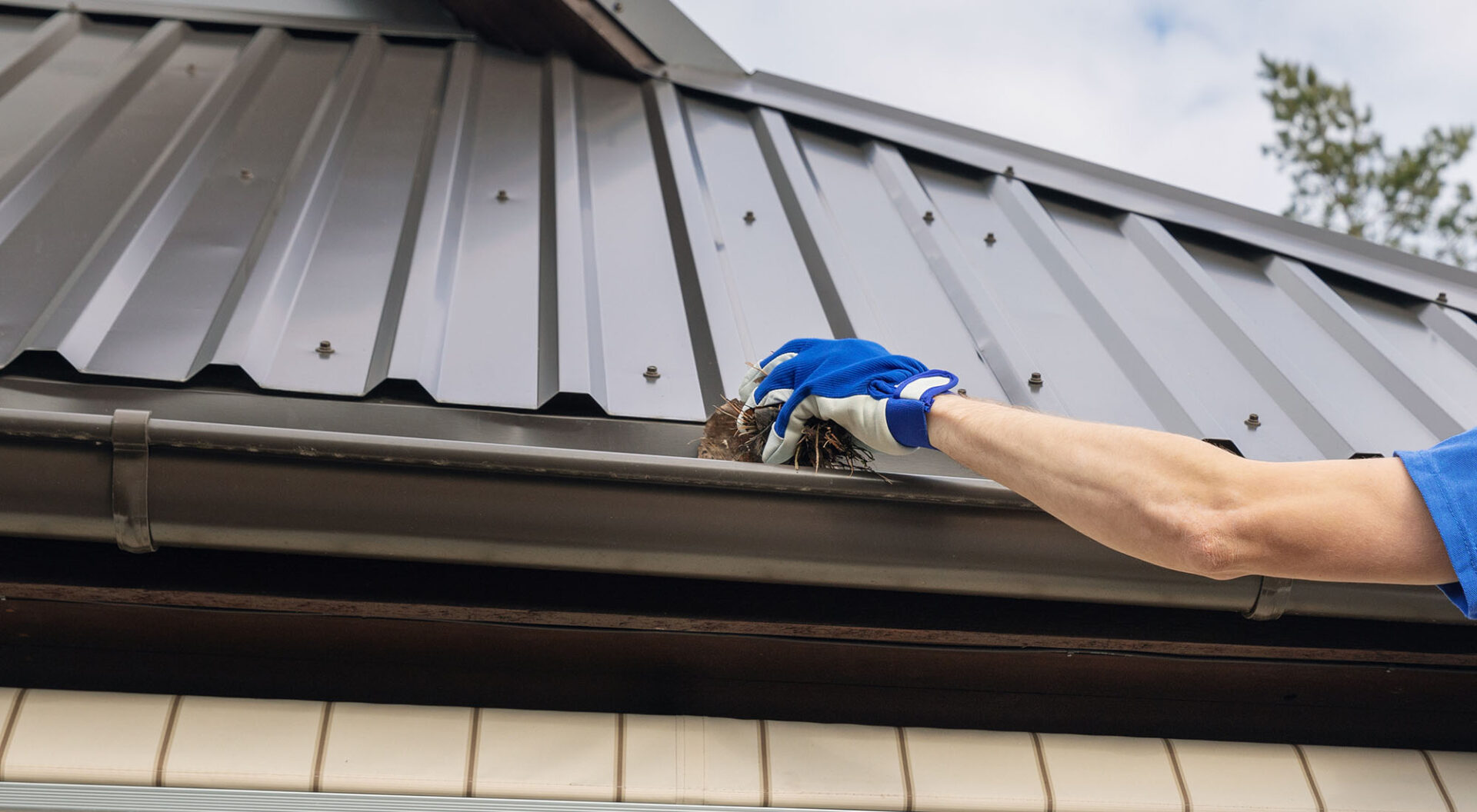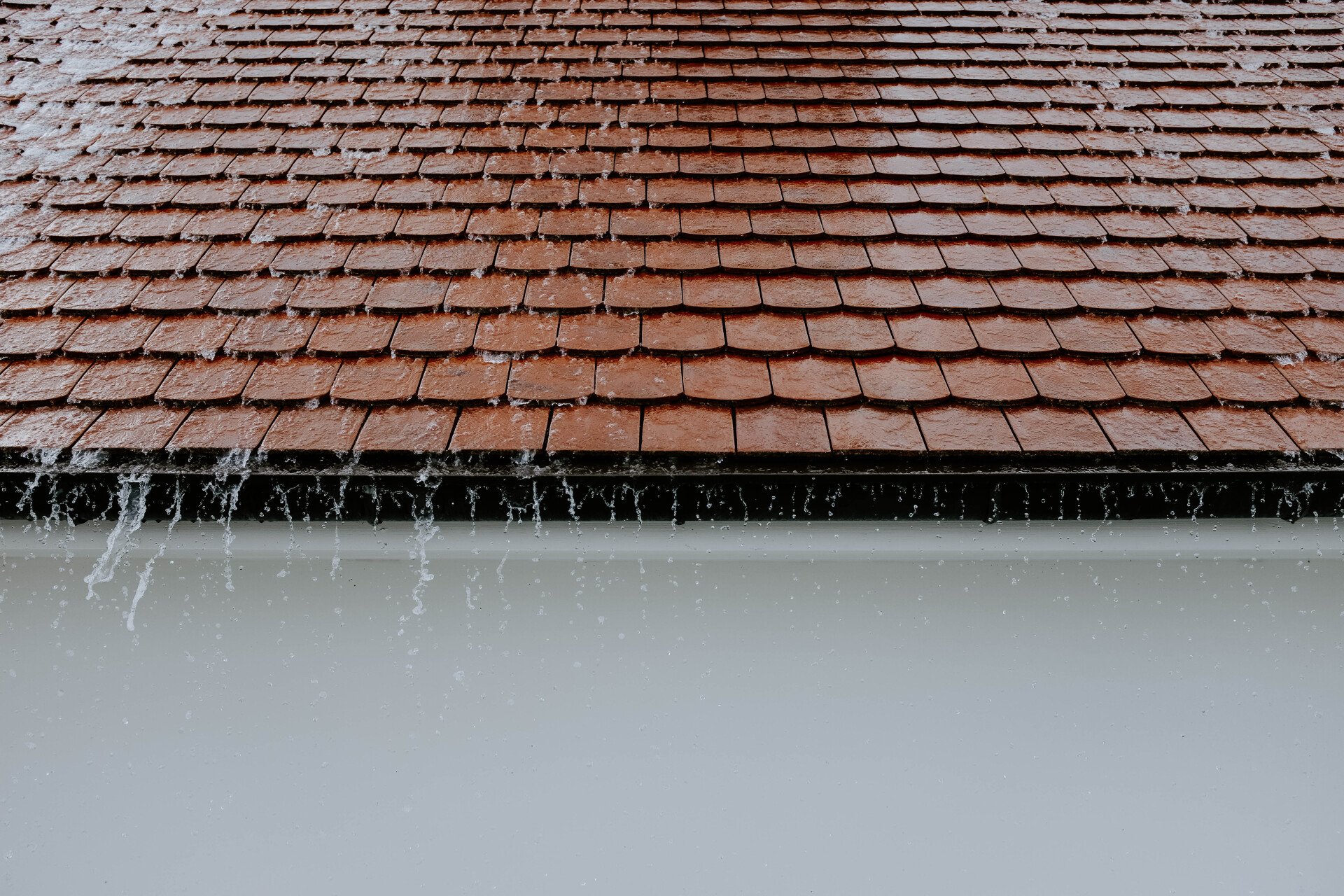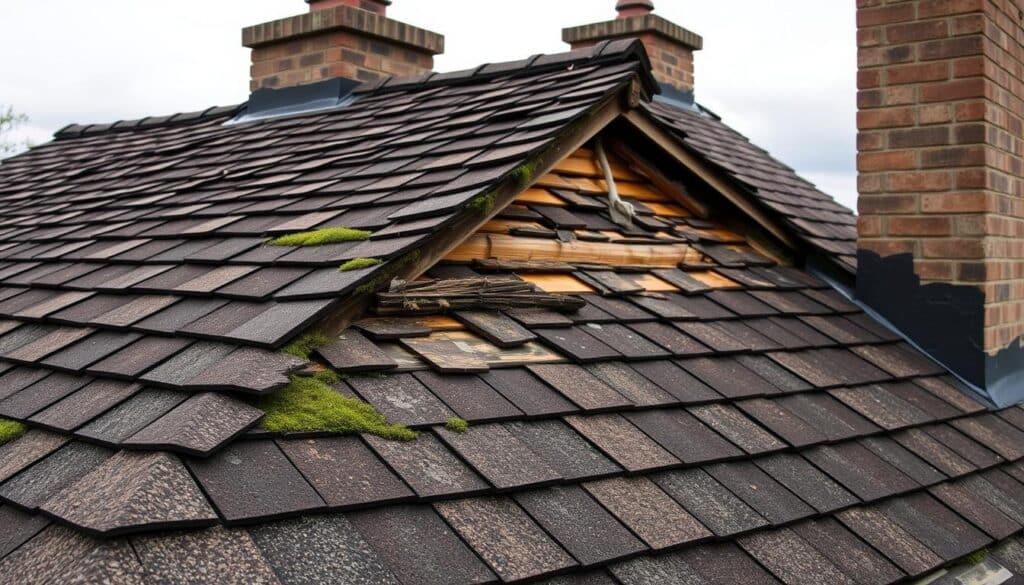If you’re planning to replace your roof, one of the first questions that comes to mind is: how much will it cost? Unfortunately, there’s no one-size-fits-all answer. Roof replacement costs can vary dramatically depending on the size and shape of your home, the roofing materials you choose, and even the area you live in. For homeowners budgeting for this project, it’s important to understand what drives these prices and where you might be able to save.
In this guide, we’ll walk you through everything you need to know about how much a new roof costs, from national cost averages to the impact of different factors on the costs.
Average Cost of a New Roof in 2025
The average cost of a new roof in the U.S. ranges from $9,000 to $20,000, depending on the size of the home, roof pitch, materials used, and local labor rates. For a typical 2,000-square-foot single-family home, most homeowners spend around $12,000 to $15,000 for a full roof replacement using asphalt shingles—the most common roofing material. Keep in mind that premium materials like metal, clay tiles, or slate can easily push the price much higher.
It’s also important to understand that roofing is usually priced by the “square,” which equals 100 square feet of roof area. A contractor might quote you something like $400 to $800 per square, depending on material and complexity. While this average gives you a solid starting point, the actual cost can swing in either direction based on your roof’s unique features, the region you live in, and whether any roof repairs or reinforcements are needed before installation begins.
What Affects the Cost of a New Roof?
When budgeting for a roof replacement, it’s essential to understand what goes into the final price. Below are the main factors that influence how much you’ll end up paying.
Roof Size
The size of your roof is one of the biggest cost drivers. Larger roofs require more materials and more labor time, so costs naturally increase with square footage. Roofers typically calculate pricing by the square, so a 2,000-square-foot roof (about 20 squares) will cost significantly more than a 1,200-square-foot roof (12 squares).
Keep in mind that “roof size” isn’t always equal to the size of your home’s floor plan. Sloped or complex roof designs add surface area, which increases cost. Even single-story homes can have large, intricate roofs that are more expensive to cover than a simple two-story design.
Roofing Material
The material you choose plays a major role in the overall cost. Asphalt shingles are the most affordable and widely used, typically ranging from $4 to $7 per square foot. On the other hand, metal roofs, tile, wood shakes, or slate can run $10 to $30+ per square foot, depending on the type and quality.
Each material comes with its own pros and cons in terms of durability, lifespan, energy efficiency, and aesthetic appeal. While cheaper materials lower upfront costs, investing in more durable options can sometimes save money in the long run by reducing maintenance and extending replacement cycles.
Read More: Difference Between Shingle, Metal and Tile Roofing
Roof Pitch and Complexity
A steep or complex roof structure can increase labor costs significantly. Roofs with multiple valleys, dormers, or a steep pitch require more time, safety precautions, and expertise to install. This adds to the overall cost compared to a simple, low-slope roof.
In addition, complex designs often mean more waste due to the extra cutting and fitting of materials. You’ll also need to factor in the cost of additional underlayment and flashing to properly seal the roof’s more intricate areas.
Labor and Local Rates
Labor costs vary widely depending on where you live. Urban areas or regions with a high cost of living tend to have higher labor rates. In some parts of the U.S., the same roof that costs $10,000 to install might run $15,000 or more in another state, purely due to labor differences.
Moreover, experienced contractors may charge a premium, but it often pays off in terms of quality and long-term reliability. Be cautious of significantly lower bids—they could indicate unlicensed labor, lack of insurance, or poor workmanship that leads to future repairs.
Removal of Old Roofing
Tearing off the old roof before installing the new one can add anywhere from $1 to $5 per square foot to the total cost. The price depends on the number of layers that need to be removed, the type of materials being discarded, and local disposal fees.
Some homeowners consider overlaying new shingles over the old ones to save money, but that option isn’t always recommended. Multiple layers can cause issues with weight, ventilation, and warranty eligibility. Most reputable roofers will recommend a complete tear-off for long-term durability.
Roof Accessibility
If your roof is hard to access—due to landscaping, fencing, nearby trees, or steep slopes—it can make the job more labor-intensive. Contractors may need special equipment like scaffolding, boom lifts, or safety harnesses, which can add to both labor time and rental costs.
Homes in dense neighborhoods or properties with limited driveway access may also face extra charges for material delivery and debris removal. Easier access usually translates to lower labor costs, so even small site conditions can impact the final quote.
Permits and Inspections
Most municipalities require permits for roof replacements, and these come with fees that vary by location. In general, you can expect to pay $150 to $500 for a roofing permit, though some cities charge a percentage of the total job cost.
In areas with strict building codes, additional roof inspections may also be required before, during, or after the roof installation. These inspections are often built into the contractor’s estimate, but in some cases, they can add a few hundred dollars to the final price.
Structural Repairs or Upgrades
Once the old roof is removed, contractors may discover damage underneath—such as rotted decking, compromised rafters, or inadequate ventilation. Fixing these issues can increase the scope (and cost) of your project significantly.
For example, replacing damaged plywood decking can cost $70–$100 per sheet, and upgrading your attic ventilation to meet current building codes can add several hundred dollars. While these repairs are sometimes unexpected, they’re necessary to ensure your new roof is installed safely and lasts as long as intended.
Read More: Roof Gutter Cleaning vs. Full Gutter Replacement
How Do Different Roofing Materials Affect the Roofing Costs?
When selecting the right roofing material, cost is always a key factor. Here’s a detailed breakdown of the most popular roofing materials, including their price per square and what impacts their overall cost.
Asphalt Shingles
Asphalt shingles are by far the most common and budget-friendly roofing material. On average, they cost between $4 to $7 per square foot, depending on the quality and brand. Standard three-tab asphalt shingles are at the lower end of the price range, while architectural shingles (which are thicker and more durable) can cost closer to $7 per square foot.
Asphalt is favored for its balance of affordability and performance. It offers reasonable longevity, with most shingles lasting between 15 to 30 years. However, these roofs may require more frequent maintenance and have lower energy efficiency compared to more expensive materials.
Metal Roofing
Metal roofing is a durable and energy-efficient option with a higher upfront cost. The price for metal roofing typically ranges from $7 to $14 per square foot. Factors such as the type of metal (steel, aluminum, or copper) and the finish will affect the cost, with copper being the most expensive and steel typically falling on the lower end.
While metal roofs are more expensive, they are extremely durable and can last 40 to 70 years with minimal maintenance. Their energy efficiency, due to the reflective nature of metal, can save homeowners on cooling costs. Metal roofs are also resistant to fire, extreme weather, and pests, making them a popular choice in regions with harsh climates.
Clay Tiles
Clay tiles offer an elegant, Mediterranean-inspired look and come with a significant price tag. The cost of clay tiles ranges from $10 to $18 per square foot, with the price varying depending on quality and the intricacy of the design. These tiles are often hand-made or kiln-fired, adding to their cost.
While clay roofs have an initial high cost, they are incredibly durable and can last 50 to 100 years. Their ability to withstand extreme weather conditions, such as heat, high winds, and heavy rain, makes them an excellent investment in warmer climates. However, their weight may require additional structural support, which can increase the overall installation cost.
Slate Roofing
Slate is one of the most durable and aesthetically pleasing roofing materials, but it’s also one of the most expensive. The cost of slate roofing ranges from $15 to $30 per square foot. The price varies based on slate quality (natural or synthetic), the size of the roof, and the complexity of the installation.
Slate roofs are known to last for 75 to 200 years, making them a long-term investment. They are fireproof, weather-resistant, and have a classic appearance that appeals to many homeowners. However, the weight of slate often requires additional structural reinforcement, further increasing the overall cost of the roof.
Wood Shakes and Shingles
Wood roofing offers a natural, rustic aesthetic, and is made from split logs, typically cedar or redwood. The cost of wood shakes or shingles typically ranges from $6 to $12 per square foot, depending on the quality of the wood and whether the shakes are hand-split or machine-cut.
Wood roofs can last between 20 to 40 years, but they require more maintenance than other materials. They are also more prone to fire and pests, which may drive up long-term costs. On the positive side, roof shingles offer excellent insulation and can provide a charming, organic look that is highly sought after in certain architectural styles.
Synthetic Roofing Materials
Synthetic roofing materials, including rubber, plastic, and polymer-based options, have gained popularity due to their affordability and versatility. The cost of synthetic roofing typically ranges from $4 to $10 per square foot, depending on the material and the manufacturer.
While synthetic materials often mimic the look of more expensive options like slate or wood, they are lighter, easier to install, and require less maintenance. Their lifespan can range from 30 to 50 years, making them a more budget-friendly long-term solution. They are also fire-resistant and energy-efficient, providing savings in cooling costs.
Read More: How to Become a Roofing Contractor in Long Island
EPDM Roofing
EPDM (Ethylene Propylene Diene Monomer) roofing is commonly used for flat or low-slope roofs. The cost for EPDM roofing typically falls between $4 to $8 per square foot. Rubber roofing is lightweight, easy to install, and highly resistant to weather conditions, including UV rays, rain, and snow.
While rubber roofs are durable and can last up to 25 to 30 years, they may require more frequent maintenance to prevent cracking or damage from debris. This option is popular for commercial properties or residential homes with low-pitched roofs due to its affordability and ability to create a seamless, watertight barrier.
TPO Roofing
TPO (Thermoplastic Olefin) is another popular material for flat roofs, and it is increasingly used in both residential and commercial applications. TPO roofing costs generally range from $5 to $7 per square foot, depending on the thickness and brand of material.
TPO is a highly reflective material that can help reduce energy costs, especially in hot climates. It is also resistant to algae and punctures, making it a solid choice for durability. With proper care, TPO roofing can last up to 20 to 30 years, making it a reliable option for flat roofs.
Wondering How Much Does a New Roof Cost?
If your roof is damaged or showing signs of wear, trying to delay or DIY repairs could end up costing you more in the long run. At Delta Roofing Long Island, our experienced roofing specialists provide transparent and accurate estimates tailored to your specific needs. Whether you’re looking for a simple replacement or a more complex roofing project, we ensure reliable, long-lasting results.
Get a hassle-free, accurate roofing estimate—contact us today to schedule your consultation!





